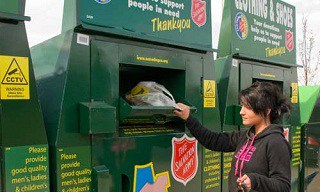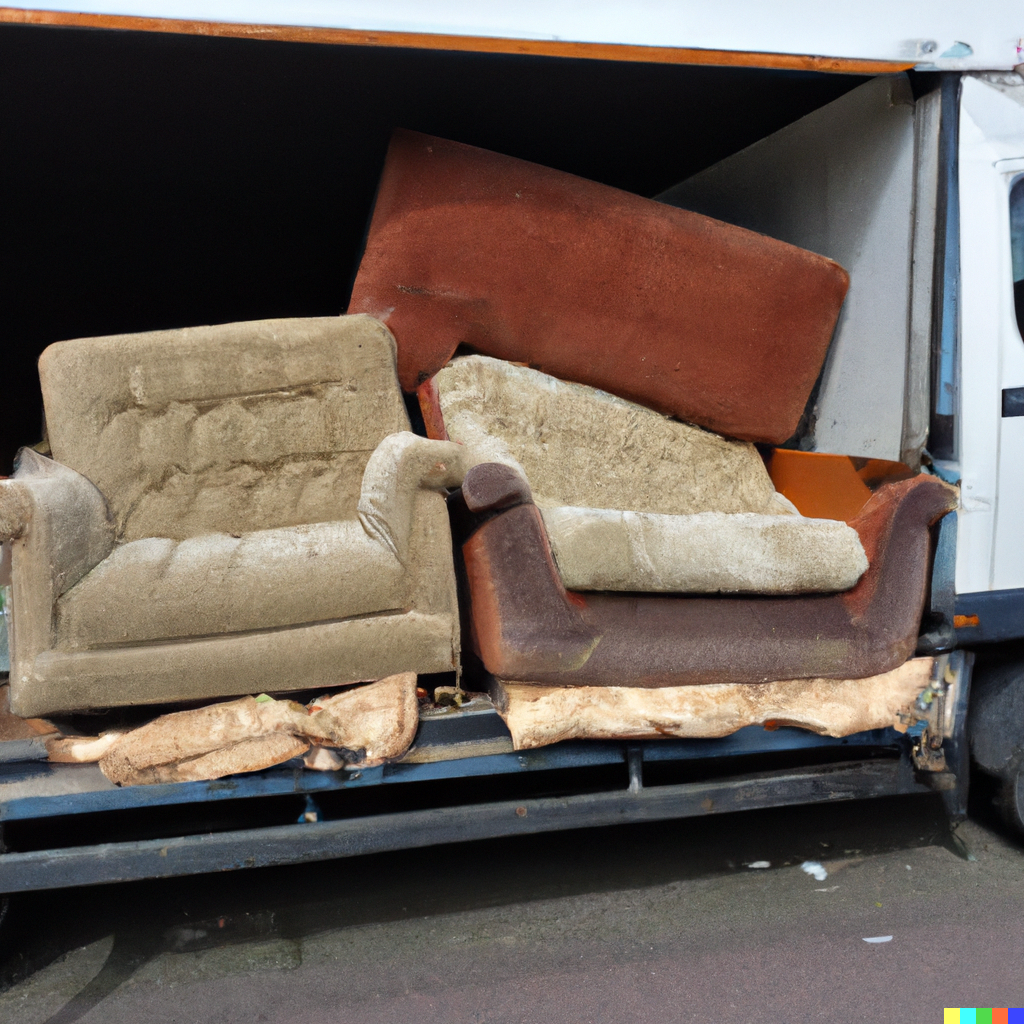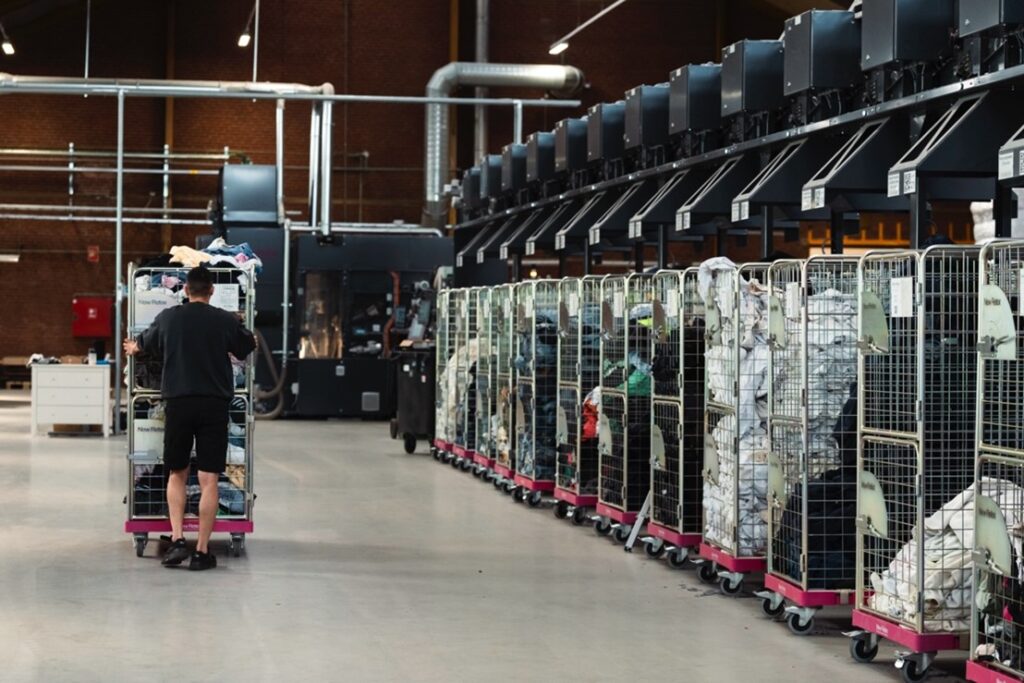The Salvation Army has unveiled plans to use the SmartWater forensic tagging system to address the growing problem of theft from its network of 5,000 textile recycling banks nationwide.
The charitys trading arm the Salvation Army Trading Company Limited (SATCoL) hopes the approach, where banks are sprayed with a colourless liquid solution, will help both to catch thieves and to deter future thefts.

The move by one of the UKs largest textile recyclers comes against the backdrop of increasing concern in the textile industry over the problem of theft from both banks and door-to-door collections. Last month, the Textile Recycling Association suggested the thefts were helping to fund more serious criminal activity (see letsrecycle.com story).
Using SmartWater leaves a non-harmful trace on people who come into contact with the liquid, which can then be transferred onto other items they come into contact with. Stolen goods with SmartWater on them can be tracked using GPS systems and the liquid also become visible under ultraviolet light.
Telford-based SmartWater has already begun an analysis of SATCoLs current theft data to produce a hotspot map, highlighting the most problematic geographical areas. These areas will then be targeted with the liquid, with each bank having its own chemical code to aid the tracking process.
SATCoL also plans to roll out signage highlighting the potential presence of the liquid across its entire network of banks to act as a deterrent to criminals.
And, SmartWater will also be involved in targeting covert operations in the hotspot areas, which will also involve regional police forces and will see the deployment of cutting-edge surveillance equipment and to capture and convict offenders.
Anti-theft strategy
SATCoLs national recycling co-ordinator, Paul Ozanne, said the technology would have an important role to play in the trading companys anti-theft strategy.
Given that we have such a large network of over 5,000 banks, theft is thankfully still a relatively small problem for us but it is undoubtedly growing, he said.
SmartWater is an excellent way to both catch criminals and deter future thefts and were confident it will succeed in doing both.
However, it is one element of an overall anti-theft strategy were employing, including improved locking mechanisms, increased use of CCTV and emptying banks several times per week so large amounts of donations arent left for long periods.
Phil Cleary, chief executive of SmartWater, added that he hoped using the technology would send out a very clear message that SATCoL clothing banks are not a soft target for thieves.
SmartWaters work with SATCoL is not the first time it has been involved in the waste and recycling industry, with SITA UK previously using it to address the issue of metal theft. Network Rail and BT Openreach are among its other clients.









Subscribe for free